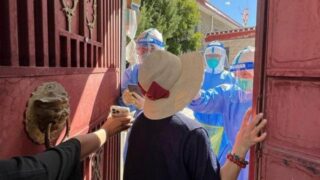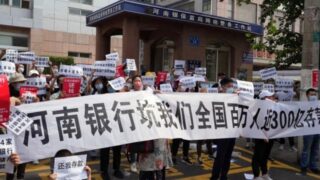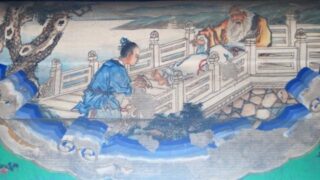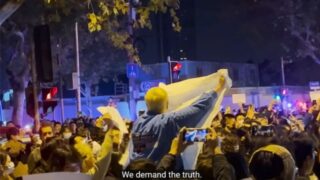The chairman of the U.S. House Foreign Affairs Committee and a former National Security Advisor are among those claiming that “The Lancet,” “The New York Times” and others willingly downplayed the Wuhan lab theory.
by Massimo Introvigne
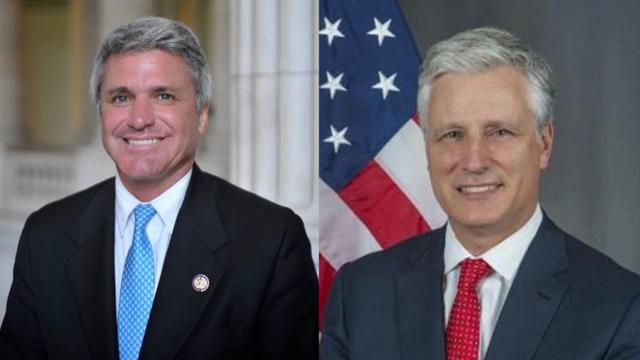

Did several general and specialized media, including “The Lancet” and “The New York Times” willingly but prematurely dismiss the laboratory leak theory about the origins of COVID-19? Raising the question immediately evokes wild conspiracy theories, and we at Bitter Winter have never endorsed one or another hypothesis, while covering all attempts by China to silence the debate.
Now, the possibility of a media cover-up is suggested not by marginal social media activists but by 43 among the top world experts of security. True, the list evidences some conservative bias, but there are names that cannot be easily ignored, including the new chairman of the U.S. House Foreign Affairs Committee, Michael McCaul, the 27th U.S. National Security Advisor, Robert O’Brien, former Assistant Secretaries of State John Hillen and Christopher Ford, and a who’s who of university professors specialized in security issues. The letter was coordinated by the Vandenberg Coalition, a non-partisan think tank specialized on foreign policy and national security issues.
Reminding that “COVID-19 has resulted in the loss of an estimated 15 million lives worldwide to date,” plus financial losses “estimated to be in the tens of trillions globally, including at least $16 trillion for the United States alone,” the letter states that, “Understanding the origins of the virus is essential to our pandemic preparedness in the future.”
However, the signatories claim, “some editors and reporters of news organizations and scientific publications stifled debate on the origins of the virus. Some even leveled accusations of racism against those who sought in good faith to investigate whether the virus may have originated from a lab leak at the Wuhan Institute of Virology. Leading scientific journals censored dissenting voices; many science writers at major news outlets promoted narratives or asserted conclusions unsubstantiated by evidence; reporters failed to make even cursory attempts at surfacing potential conflicts of interest of their sources.”
The security experts believe that “by prematurely dismissing or stigmatizing certain questions—from the very outset of the pandemic— many prominent scientists and journalists failed in their duty.” On the other hand, “Over the past three years, investigations into the origins of COVID-19 have established a lab leak as a legitimate possible explanation for the emergence of the pandemic. These inquiries include the World Health Organization Scientific Advisory Group on the Origin of Novel Pathogens, intelligence reports; letters by scientists; multiple Congressional reports by the [then] minority staffs of the U.S. House Committee on Foreign Affairs and the U.S. Senate Committee on Health, Education, Labor, and Pensions; and inquiries by highly credible scientists and reporters.”
The letter offers some examples of “notable failures.” “The Lancet” repeatedly denounced the laboratory leak hypothesis as a “conspiracy theory,” and failed to inform its readers that some of the authors of the early reports later changed their mind. “The New York Times” gave enormous publicity to the pre-print version of an article submitted to “Science” magazine claiming to conclusively debunk the laboratory hypothesis. Later, the boldest assertions in the article had to be eliminated after peer review, something which received much less emphasis on the “Times.”
The signatories of the letter are experts of security, not science. They do not come to any conclusion on the origin of the virus (nor do we at Bitter Winter, of course). However, they do come to a conclusion on a matter that is within their field of expertise. They suggest that Chinese influence was at work in various ways on international media, including scientific publications. Others, they suggest, had a broader ideological bias, supporting appeasement rather than confrontation between China and the West. They rightly believed that any evidence supporting the theory that the enormous tragedy of COVID-19 was China’s responsibility (because of carelessness, not of a sinister plot) would made appeasement impossible for decades to come. However, the letter said, prestigious media and academic journals should tell what they sincerely believe to be the truth, rather than speculating on the possible consequences.


